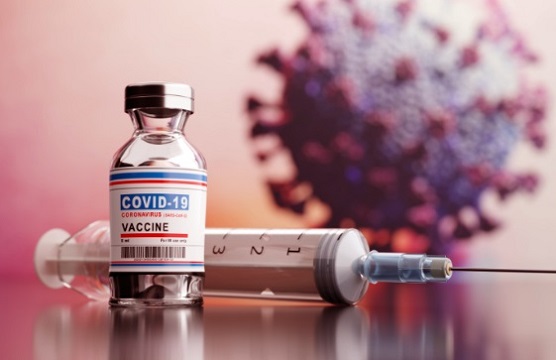Polish Doctors Warn That COVID-19 mRNA Vaccines Causes Rapid Progression of Skin Cancers
Nikhil Prasad Fact checked by:Thailand Medical News Team Jun 26, 2025 7 months, 4 weeks, 1 day, 1 hour, 18 minutes ago
Medical News: A team of dermatologists and cancer researchers from the Medical University of Gdańsk in Poland have published a concerning case report that may reignite questions about rare but serious side effects following COVID-19 mRNA vaccinations. Their detailed clinical investigation describes the sudden onset and rapid progression of a rare skin cancer known as mycosis fungoides in an elderly woman shortly after receiving two doses of the Pfizer-BioNTech COVID-19 vaccine.
 Polish Doctors Warn That COVID-19 mRNA Vaccines Causes Rapid Progression of Skin Cancers
Polish Doctors Warn That COVID-19 mRNA Vaccines Causes Rapid Progression of Skin Cancers
This
Medical News report comes amid growing scrutiny of post-vaccination immune responses, especially in people with underlying or undiagnosed immune-related disorders. Though COVID-19 vaccines have been proven overwhelmingly safe and effective, the researchers suggest that certain individuals may react adversely due to underlying genetic or immune predispositions.
Unfolding of a Rare and Alarming Case
The patient, a 75-year-old woman, had previously been managing a skin condition that appeared similar to eczema or psoriasis and was receiving topical treatments without any major health issues. However, just days after her first dose of the mRNA COVID-19 vaccine in June 2021, her condition dramatically worsened. New red, itchy patches and thicker plaques appeared across her body. After her second vaccine dose in July 2021, the disease rapidly advanced, forming large ulcerated tumors on her leg and causing lymph node enlargement.
Doctors from the Department of Dermatology, Venereology and Allergology, along with colleagues from the Department of Pathomorphology at the Medical University of Gdańsk, confirmed a diagnosis of advanced mycosis fungoides—a type of cutaneous T-cell lymphoma. They ruled out internal organ involvement, and blood tests showed unusual T-cell profiles, including CD4+ T-cell abnormalities commonly seen in lymphoproliferative disorders.
The patient underwent a combination of treatments including oral methotrexate and strong topical steroids, leading to significant clinical improvement. Sadly, after contracting COVID-19 in early 2022, her health rapidly deteriorated due to lung complications, and she died later that year.
The Science Behind the Concerns
This case prompted the researchers to conduct a deeper review of how mRNA vaccines might influence the immune system and potentially accelerate cancers in vulnerable individuals. They found that both the mRNA and lipid nanoparticle components of the vaccine can activate powerful immune pathways—especially Toll-like receptors (TLRs) that trigger inflammation via NF-κB and STAT3 signaling. These pathways are also heavily involved in the development and growth of lymphomas like mycosis fungoides.
Crucially, the patient’s skin and lymph node biopsies revealed aggressive disease marked by T-cell exhaustion, CD30 overexpression, and signs of immune dysregulation—all of which were notably heightened after vaccination. The resear
chers propose that repeated mRNA vaccine exposure may overstimulate immune pathways in people with pre-existing or latent lymphoproliferative conditions, unmasking disease and driving rapid tumor growth.
Similar cases in the medical literature have described other cutaneous lymphomas emerging or worsening after COVID-19 vaccination, but these remain rare. Nonetheless, this case adds weight to the hypothesis that mRNA vaccines can, under specific conditions, act as immune system modulators that may influence cancer behavior.
Key Insights and Takeaway Messages
The Gdańsk researchers stress that while there are claims of so-called benefits of COVID-19 vaccines, this case illustrates the need for heightened vigilance in monitoring unusual or aggressive skin conditions post-vaccination—especially in elderly individuals or those with compromised immunity.
They advocate for more detailed research into how mRNA vaccine components may interact with genetic and immune vulnerabilities. Understanding these complex interactions could help predict and prevent such outcomes in future immunization campaigns or during booster strategies.
Conclusion
Although extremely rare, this case underscores a potentially serious side effect of mRNA COVID-19 vaccination in a patient with a latent form of cutaneous lymphoma. The findings suggest that vaccine-induced immune stimulation might contribute to the emergence or exacerbation of certain cancers in susceptible individuals. More large-scale studies are needed to investigate this link and ensure that all at-risk populations are identified and appropriately managed during vaccination programs.
The study findings were published in the peer reviewed journal: Vaccines.
https://www.mdpi.com/2076-393X/13/7/678
For the latest COVID-19 News, keep on logging to Thailand
Medical News.
Read Also:
https://www.thailandmedical.news/news/breaking-spike-protein-found-in-brain-arteries-long-after-covid-19-mrna-vaccination-raises-global-health-fears
https://www.thailandmedical.news/news/it-was-wrong-to-have-used-the-spike-proteins-in-the-covid-19-vaccines-as-they-can-elicit-many-kinds-of-pathogenic-autoantibodies
https://www.thailandmedical.news/news/northwestern-university-study-finds-that-covid-19-vaccines-do-not-prevent-neurological-symptoms-of-long-covid
https://www.thailandmedical.news/articles/vaccine-news
